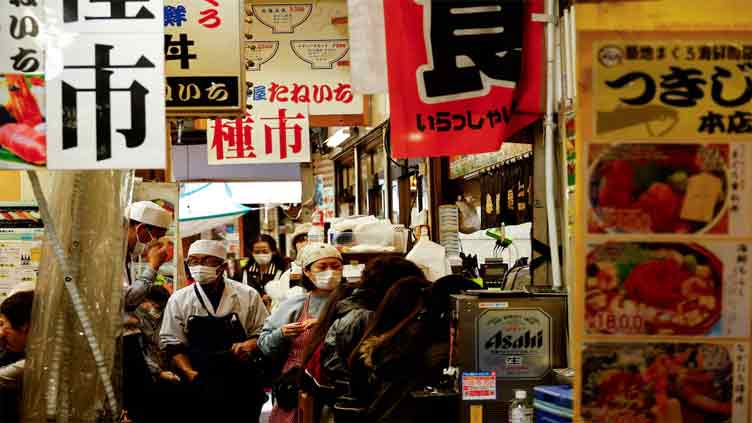Japan base pay rises by most in 31 years, part-time workers see robust gains

Business
Wages hold the key to how soon the central bank could raise interest rates
Development expected to boost consumer spending
Inflation-adjusted real wages fell for a record 26th straight month as a weakening yen and higher commodity prices pushed up imports costs
TOKYO (Reuters) – Japanese workers saw their average base pay climb 2.5 per cent in May – the fastest pace in 31 years – as bumper pay hikes offered by companies in annual wage negotiations took effect, while part-time workers notched up some particularly strong gains.
But inflation-adjusted real wages fell for a record 26th straight month as a weakening yen and higher commodity prices pushed up the cost of imports, complicating the Bank of Japan's (BOJ) efforts to normalise monetary policy.
Wages hold the key to how soon the central bank could raise Japanese interest rates. BOJ Governor Kazuo Ueda has said broad-based increases in pay must accompany rising prices for inflation to durably meet the bank's 2pc target.
The 2.5pc gain in May from a year earlier was bigger than a revised 1.6pc increase in April and marked the fastest pace since January 1993, around the time when Japan's asset bubble burst.
"The data highlights Japan's increasing wage momentum. While [Japan] real wages continue to fall, they will likely start rising in July," said Yoshimasa Maruyama, chief market economist at SMBC Nikko Securities.
Nominal wages, or the average total cash earnings per worker, grew 1.9pc to 297,151 yen ($1,850), accelerating from the previous month's 1.6pc gain to mark the highest year-on-year increase in 11 months.
But when adjusted for inflation, wages fell 1.4pc in May after a revised 1.2pc decline in April.
There were signs that Japan's intensifying labour shortage is leading to broader-based wage rises. Wage hikes at firms with 30 or more employees outpaced inflation for the first time in 26 months, though when very small firms with five or more workers were included, pay hikes still lagged [Japan] inflation.
Hourly pay for part-time workers rose 4.0pc in May from a year earlier, outpacing a 2.7pc gain for full-time staff.
In one example of robust gains for part-time workers, the Hotel Mercure in Sapporo has raised its hourly pay for part-time workers by 15pc on average this year, more than a 4pc increase for its full-time workers.
"At this time of labour shortages, we need to offer high wages to attract part-time workers," said Kiyohiko Bando, manager at the hotel.
Tomomi Otake, who is now working part-time at the hotel, said she was motivated to rejoin the workforce after five years because of the attractive pay, flexible shifts and the need to fund her children's education.
Part-time workers make up 30pc of Japan's total workforce. They and other temp staff earn on average a third of salaried workers, according to Hisashi Yamada, a senior economist at Japan Research Institute.
"As wage hikes broaden to part-time workers, that will have a trickle-down effect on [Japan] consumer spending by boosting their purchasing power," he said.


